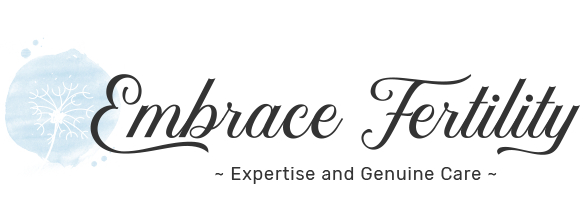When you’re looking at creating a family, there are many things to consider, not least how and when to get started. We know conception often starts with an embrace, but there is also some mathematics behind the process. Embrace Fertility gynaecologist Dr Nicole Edge has some fun facts and figures about fertilisation for you.
I’m going to share some very un-sexy facts about getting pregnant and how to maximise your chances of doing it naturally. The key is to time it to ovulation. Sounds so simple doesn’t it? I can almost hear the eye-rolls and comments that ‘an app can tell me that!’ … but let’s get into the details…
-
How do you count your cycle?
The first day of your period is called ‘day one’, the second day is ‘day two’, the third day is ‘day three’…. Then you simply keep counting up, even when your bleeding has stopped until you get the next period. The first day of your next period is day one again. So if you are day ten of your cycle, it means that it has been 10 days since the first day of your last period.
-
So when do you ovulate?
If your cycles are regularly between 21 and 35 days you are probably ovulating. Some women take longer to ovulate that others, which is why cycle length can vary. Once you have ovulated the corpus luteum (ovulation cyst on the ovary) produces oestrogen and progesterone for about 14 days then you get your period. This timing is the same for the majority of women – so generally you can assume you will ovulate 14 days before you get your period.
So if you have a 28 day cycle – you probably ovulate on day 14 (28-14).
If you have a 31 day cycle – you probably ovulate on day 17 (31-14).
-
When should you have sex?
Once you have ovulated your progesterone levels will be high and the mucous in the cervix gets very thick. This makes it very hard for sperm to get through! You are more likely to conceive if the sperm are already there ‘waiting’. You heard me ladies, waiting… Sperm can stay alive 2-5 days in the female genital tract! So it is ideal to have sex starting 5 days before you expect to ovulate, meaning 19 days (14+5) before you expect your next period.
So if you have a 28 day cycle – start having sex on day 9 of your cycle (28-19).
If you have a 31 day cycle – start having sex on day 12 of your cycle (31-19).
-
How often should you have sex?
Ideally have sex every second day to ensure adequate sperm numbers are ‘available’ at the time of ovulation. If you do this for a week, that means even if you ovulate a couple of days late, the sperm will be there ‘waiting’.
-
When does conception happen?
The egg (oocyte) only survives 12-24 hours after ovulation – so conception occurs within this window BUT sex may have been as long as five days ago as sperm are much hardier (sneakier!). So while we often think of conception as an intimate moment you may actually be at the gym, doing dishes, driving to work or any of your usual tasks. Conception happens within the fallopian tube and the majority of pregnancies then implant in the uterus 5-6 days later.
-
What if I don’t have regular cycles?
If your cycles are less than 21 days, longer than 35 days or ‘all over the place’ you may not be ovulating – but it is still a good option to try to conceive naturally for a while. Keep a period diary to see if there is any pattern to your cycles in case you are able to time it as described above. Otherwise aim to have sex 2-3 times per week, every week except during your period.
-
What if it’s not working?
It can be really hard on a you when things aren’t going as planned. Often, we have spent years ‘preventing pregnancy’ – so finding it hard to conceive is just not expected a lot of the time. If you have been trying to fall pregnant naturally for 12 months please talk to your GP, Gynaecologist or reach out to us. If you are over 35, have irregular cycles, period pain, heavy periods or other concerns please call us after 4-6 months of trying – or sooner if you feel this is best for you. This journey can be hard but you do not have to walk it alone.
– Dr Nicole Edge Gynaecologist / Fertility Specialist / Obstetrician MBBS FRANZCOG GCertBiostat MRMed

